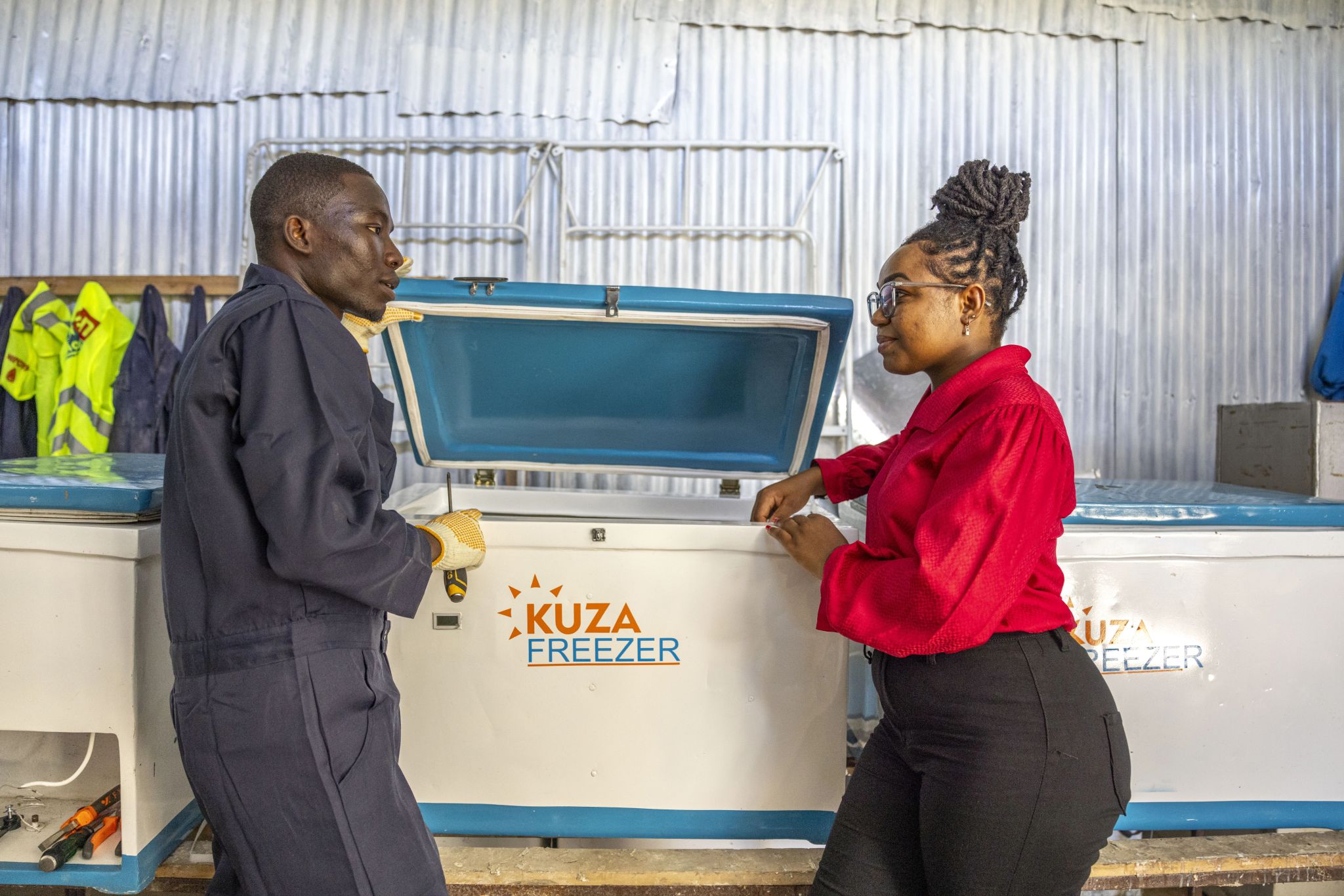A Kenyan startup is tackling two challenges—pollution and food storage—by transforming plastic waste into solar-powered freezers.
Kuza Freezer, based in Mombasa, Kenya, collects plastic waste from beaches, turning it into pellets to mold into cold storage units. Each freezer includes a battery charged by solar panels, providing up to 7 hours of operation on just a two-hour charge.
Purity Gakuo, CEO of Kuza Freezer, explains the company’s mission: “We focus on providing cold storage solutions to small-scale businesses in the fish value chain, helping them improve income and reduce post-harvest losses.”
In three years, Kuza Freezer has delivered over 350 units to various customers, including fish traders, poultry and milk vendors, and ice sellers. They offer a range of products, from static freezers for fishing boats to units designed for installation at businesses.
For customers like Abdalla Ali, a fisherman in Mombasa, these freezers address a critical need. “We have a big challenge with storage,” Ali says. “When we catch fish, we don’t have anywhere to store them. Putting them in ice can be risky due to melting in the hot sun, resulting in losses.”
Nickson Otieno, CEO of a Nairobi sustainability consulting firm, highlights the broader impact of Kuza Freezer’s initiative. “Food security suffers due to perishable goods and inadequate infrastructure for timely delivery,” Otieno explains. “Additionally, plastic waste is a major environmental issue. By repurposing this waste into freezers, Kuza Freezer is tackling both challenges simultaneously.”
With a price tag of Ksh 100,000 ($700), these freezers offer an investment for businesses seeking reliable cold storage solutions. Kuza Freezer’s innovative approach not only addresses practical needs but also contributes to a cleaner environment and improved food security in Kenya.

